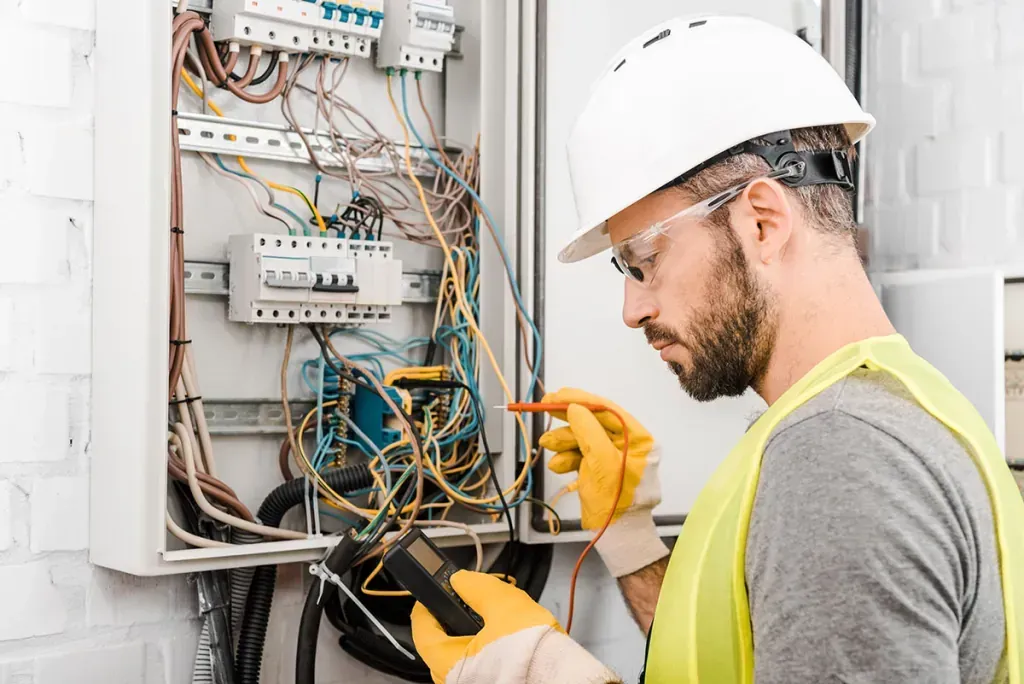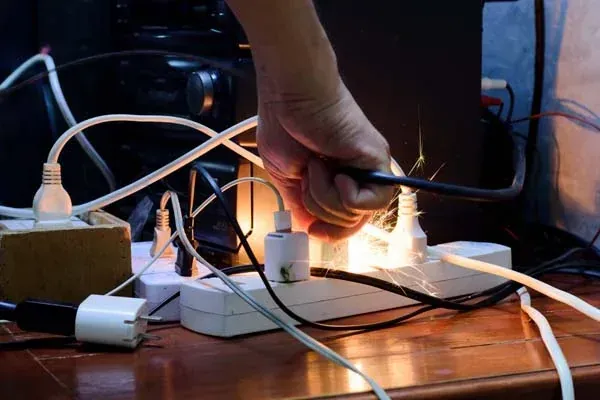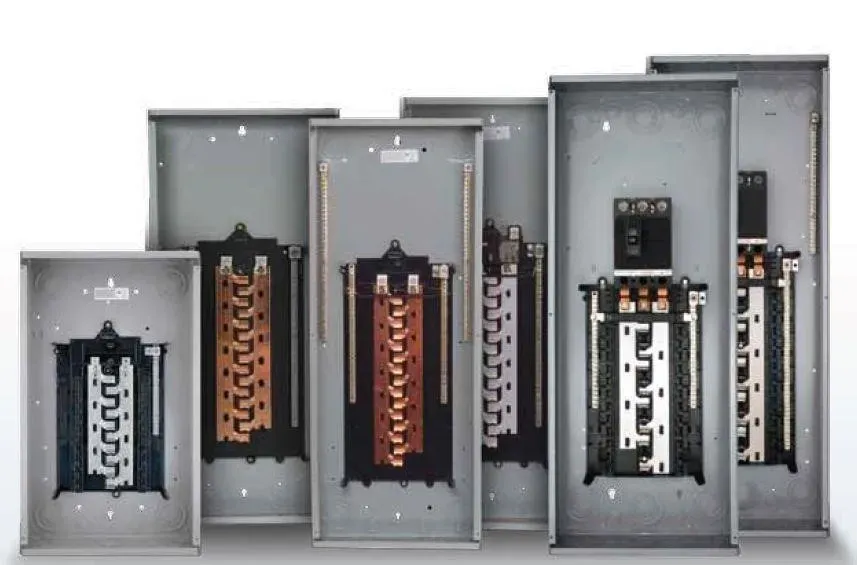Is Your Old Throop Home a Fire Risk? Common Electrical Hazards You Shouldn't Ignore
There's something wonderful about the older homes scattered throughout Throop. Whether it's a solid brick home from the early 1900s or a charming mid-century house with character you just don't find in new construction, these properties have stories and personality. But hidden behind those walls and beneath those floors might lurk a dangerous secret: electrical systems that are worn out, outdated, and potentially deadly.
Many Throop homes were constructed in the 1940s, 50s, 60s, and 70s, when households used a small fraction of the electricity we consume today. A few lights, a radio, one TV, maybe a window air conditioner, that was the extent of electrical demand. Flash forward to now, and we're running central air, multiple computers, smart TVs in several rooms, and countless other devices. Those old electrical systems simply cannot handle this safely.
Let's examine the electrical fire hazards that might be present in your older Throop home.
Obsolete Wiring That Creates Danger

Knob and Tube Wiring
If your Throop home dates back to before 1950, there's a genuine possibility it still contains knob and tube wiring. This antique system uses white porcelain knobs and tubes to support and route individual wires through walls, floors, and ceilings.
Why it creates fire risk: This primitive wiring has no ground wire whatsoever no safety backup if something fails. The cloth or rubber insulation becomes brittle after decades and eventually cracks and falls away, leaving bare copper conductors exposed inside your walls. When well-meaning homeowners add insulation to their attics without realizing this wiring exists, the insulated wires can't release heat properly and may eventually ignite surrounding materials.
How to spot it: Look in your basement, attic, or crawl spaces for white ceramic knobs with black wires running between them. If you find this, get a professional electrician to evaluate your home immediately.
Aluminum Wiring Issues
During the late 1960s and early 1970s, many homes were wired with aluminum instead of copper to reduce costs. Plenty of Throop homes from this era still have it throughout.
The fire hazard: Aluminum wire expands and contracts much more dramatically than copper as it heats up and cools down. Over many years of this cycling, connections gradually work loose. Loose electrical connections develop resistance, resistance generates heat, and excessive heat ignites fires.
What to look for:
- Outlets or switch plates that feel warm
- Lights that flicker without an obvious cause
- A faint burning plastic smell near outlets
- Outlets or switches with dark discoloration
Overloaded Circuits: Too Many Demands
Older Throop homes generally have far fewer electrical circuits than modern building codes require. When you try to draw more electricity than a circuit is designed to handle, you create a serious fire hazard.
Signs your circuits are overloaded:
- Circuit breakers trip repeatedly
- You can't operate two appliances on the same circuit simultaneously
- Outlets feel warm or hot when touched
- You hear buzzing or crackling sounds from outlets
- There's a persistent burning smell near electrical fixtures
Dangerous misconception: Many homeowners believe that adding more power strips solves the overload problem. It absolutely doesn't. You're still forcing excessive current through the same undersized circuit. The only safe solution is adding additional circuits or upgrading your electrical service capacity.
Two-Slot Outlets: Missing Critical Protection
Those old outlets with just two slots instead of three are lacking a vital safety feature: the grounding connection.
The ground (that round third hole) provides a safe pathway for electricity if there's a malfunction. Without it, you risk electric shock from appliances, and your expensive electronics have no protection from power irregularities.
Important fact: Simply swapping two-slot outlets for three-slot versions doesn't make them safe unless the wiring behind the wall actually includes a ground conductor. Only a qualified electrician can verify whether your home's wiring is properly grounded.
Important fact: Simply swapping two-slot outlets for three-slot versions doesn't make them safe unless the wiring behind the wall actually includes a ground conductor. Only a qualified electrician can verify whether your home's wiring is properly grounded.
Amateur Electrical Work: A Hidden Danger
In older homes, we routinely discover electrical work performed by unqualified homeowners or unlicensed "handymen." Sometimes these modifications have been hidden for decades.
Typical dangerous mistakes:
- Using the wrong wire size for the electrical load
- Making poor wire connections that loosen over time
- Leaving wire splices exposed without proper junction boxes
- Connecting wires with electrical tape rather than approved connectors
- Overloading circuits by adding too many outlets to one circuit
Defective Electrical Panels
Your electrical panel controls all the electricity flowing through your home. When it's faulty or outdated, your entire house is at risk.
Panels known to be fire hazards:
- Federal Pacific Electric (FPE) panels and circuit breakers often fail to trip during overload conditions
- Zinsco/Sylvania panels and breakers frequently don't disconnect power when they should
- Any panel showing rust, corrosion, burn marks, or physical damage
- Panels that feel warm or hot to the touch
Damaged and Deteriorated Cords
Walk through your home and carefully inspect electrical cords. What condition are they really in?
Hazardous cord conditions:
- Insulation that's cracking or fraying
- Visible copper wire showing through
- Extension cords being used as permanent wiring solutions
- Cords running under carpets or area rugs
- Cords pinched by furniture, doors, or windows
Damaged insulation exposes live electrical conductors. These exposed wires can arc and spark, easily setting fire to nearby carpets, drapes, or furniture. Replace any damaged cord immediately – don't wait.
Malfunctioning Outlets and Switches
Pay close attention to how your outlets and switches perform. They're communicating important information.
Warning signs:
- Outlets that no longer grip plugs securely
- Switches that feel loose or make buzzing noises
- Visible sparking when plugging devices in
- Darkened or discolored areas around outlets or switches
- Any electrical device that feels hot
These symptoms indicate failing connections inside the device. Poor connections generate heat, and heat in electrical systems starts fires.
Missing GFCI Protection
GFCI (Ground Fault Circuit Interrupter) outlets contain sophisticated sensors that detect electrical faults and shut off power almost instantly. They're legally required in locations where water and electricity might meet because this combination is deadly.
Where GFCI protection is mandatory:
- All bathroom outlets
- Kitchen outlets serving countertop areas
- Every outdoor outlet
- Garage outlets
- Basement areas, especially near sinks or water sources
- Laundry areas
Many older Throop homes completely lack GFCI protection. Adding it is relatively affordable and dramatically reduces the risk of electrocution.
Your Action Plan Right Now
Found some of these hazards in your home? Here's exactly what you need to do:
Arrange a complete professional inspection: Don't attempt to evaluate electrical safety on your own. Hire a licensed electrician to comprehensively inspect your home's entire electrical system. Bee-lectric can identify hidden hazards and provide specific recommendations for your particular situation.
Address urgent problems first: Some electrical issues demand immediate correction. Your electrician will help you understand what's critically urgent versus what can be scheduled for the near future.
Create a realistic upgrade plan: You probably can't afford to fix everything simultaneously. Work with your electrician to develop a practical timeline for bringing your home up to current safety standards.
Never try DIY electrical fixes: Electricity allows no room for error. Even apparently simple electrical work requires proper training, specialized tools, and detailed knowledge to perform safely.
Throop's Climate and Electrical Safety
Northeastern Pennsylvania's climate creates specific challenges for electrical systems. Cold winters mean heating systems (even gas furnaces need electricity for blowers, thermostats, and controls) draw substantial power. Many older homes use space heaters that further stress circuits. Summer humidity can accelerate corrosion of electrical connections and components.
The freeze-thaw cycles can also cause structural shifts that stress old wiring inside walls. These regional factors make maintaining a safe electrical system particularly important in our area.
The Bottom Line
Your older Throop home may be filled with character, memories, and charm, but don't let sentiment blind you to real safety dangers. You don't need to be an electrical engineer to recognize warning signs – just pay attention to things like frequently tripping breakers, warm outlets, flickering lights, and unusual odors.
A thorough electrical safety inspection from professionals like Bee-lectric is a wise investment that protects your family and preserves your property. Your wonderful older home deserves an electrical system that's as safe and reliable as the home itself is solid. Electrical problems never fix themselves or improve with age. They only continue deteriorating until something fails – often catastrophically. Take action today, before warning signs turn into emergencies.



